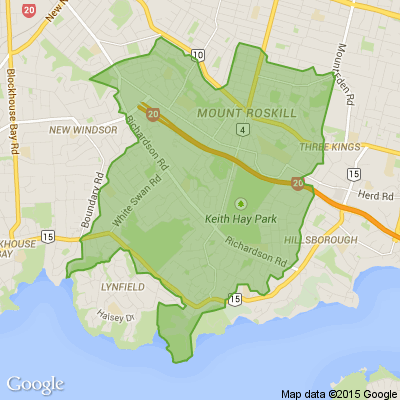MPs' and Ministers' expenses for the final three months of the year have been released, detailing the breakdown of the more than $2.3 million bill for taxpayers.
MP expenses are released every three months by the Parliamentary Service and the Office of the Clerk. It details the accommodation and travel expenses for all MPs - both of which are regular expenses required for MPs to fulfil their duties, allowing them to be present in Wellington to attend Parliament as well as their home and constituent communities.
The report does not include ministerial travel and accommodation, which is administered by Ministerial Services and is reported separately by that body and was also released today, also covering the period from October 1 to December 31 2023.
MP expenses came to almost $1.7m and Ministerial expenses came to more than $670,000.
=========================================================
Costs tend to be higher for MPs who live in more far flung places, adding to travel costs, and more senior MPs, especially a prime minister, deputy prime minister, and speaker.
Some MPs also had higher totals than they might otherwise due to expenses from the previous quarter being reported in the latest quarter.
The National Party - which has the largest caucus in the Parliament - spent the most on expenses in the period, totalling almost $731,000.
Prime Minister Christopher Luxon was the biggest expense of the lot, at a cost of just more than $57,500 - but that included VIP transport of more than $39,000 - part of the requirements of being in the top job. The rest was made up of costs of almost $7500 for accommodation, air travel of $9500 and "surface" - ground travel, such as taxis of more than $1300.
The next highest expenses cost in National's caucus was Auckland-based Defence Minister Judith Collins, at a cost of more than $24,200, made up of more than $6000 for accommodation and just over $18,000 on travel, including more than $16,000 on surface travel.
Erica Stanford and Harete Hipango had higher totals than Collins but theirs included expenses brought forward from the previous quarter.
Labour, with the next biggest caucus, spent almost $462,000 in the quarter. Its biggest expense was Manurewa MP Arena Williams, who spent almost $23,000 on expenses, including $8380 on accommodation in Wellington, more than $10,000 on air travel and almost $4400 on surface travel.
The lowest spender was new Finance spokesperson Barbara Edmonds, who is based near Wellington. She spent $521, most of which was $403 on flights.
Three MPs had no expenses to declare: outgoing or already-gone MPs Andrew Little, Nanaia Mahuta and Grant Robertson.
Leader Chris Hipkins - who is based in Upper Hutt - declared $1129, all of which was on flights.
The Speaker, Deputy Speaker and Leader of the Opposition are eligible for VIP transport services.
The Greens spent almost $177,000 and the ACT caucus almost $155,000.
For the Greens, third assistant speaker Teanau Tuiono declared almost $25,000 of expenses, including more than $7000 for flights and almost $10,000 for accommodation.
For ACT, Mark Cameron, who is based in rural Northland, declared almost $21,000 in expenses, the highest of any ACT MP. That included almost $10,000 on accommodation and a similar amount on travel, split almost evenly between flights and ground travel.
New Zealand First's eight MPs spent almost $68,000, while Te Pāti Māori's six MPs spent more than $80,000.
NZ First MP Jamie Arbuckle, from Marlborough, topped his party with more than $16,000 spent, while Te Pāti Māori co-leader Rawiri Waititi - who lives in a remote part of his Waiariki electorate - spent $36,500, about $26,000 of which was on travel.
Independent MPs Meka Whaitiri and Elizabeth Kerekere declared almost $15,000 and more than $7200 respectively for the period.
According to Parliamentary Services, party whips monitor non-ministerial MP expenses, and if they notice a member is incurring excessive expenses, can ask MPs to limit further costs for the year.
All expenses reported exclude GST Fringe Benefit Tax, which applies to Parliamentary Service travel expenses.
The report does not include ministerial travel and accommodation, which is administered by Ministerial Services and is reported separately by that body and was also released today.
Ministerial expenses for the new Government began from November 27, when ministerial warrants were issued, and ceased from that date for the previous government.
Ministers in the coalition Government spent $266,118 from that date.
Ministers in the previous Government - which included Labour and Green MPs - spent $405,522 from October 1 to November 27.
Costs included those for Ministers, spouses and staff.
Those figures were also exclusive of GST and Fringe Benefit Tax.
==============================================
www.1news.co.nz...
===============================
Best way to use leftovers?
I'm sure you've got some excess ham at home or cold roast potatoes.
What are some of your favourite ways to use leftover food from Christmas day? Share below.

Te Pūrākau o Te Rangatira Ngākau Hūmarie - Day 34
The Tale of the Humble Leader
In a small Māori village near the coast of Aotearoa, the whānau were preparing for Te Rā o te Kirihimete (Christmas Day). It was a time of celebration, sharing, and remembering the values of aroha (love), manaakitanga (hospitality), and kotahitanga (unity). However, this year, the village faced a challenge. Their rangatira, Wiremu, had grown distant and prideful, burdened by his position.
Wiremu often made decisions alone, thinking that his wisdom and authority were enough to guide the iwi. While the villagers respected him, they felt unheard, and the spirit of unity began to fade.
As the Kirihimete celebrations approached, the kaumātua, Hinewai, decided to intervene. She invited Wiremu to the marae one evening, where she shared a story about Tāwhaki, the demigod who ascended to the heavens not through power, but through humility and service.
“Wiremu,” Hinewai said, “even the greatest leaders are at their strongest when they serve their people. Leadership is not about standing above others but walking beside them.”
Wiremu reflected on her words but was unsure how to change.
The Lesson of the Whetū (Stars)
On Christmas Eve, as the village prepared for their festivities, a fierce storm rolled in from the sea. The winds howled, and the rain poured, threatening to ruin the celebration. The central whare kai (dining hall) began to leak, and the decorations the tamariki had made were soaked. The people gathered anxiously, unsure of how to proceed.
Wiremu stood at the edge of the marae, looking at the chaos. In that moment, Hinewai’s words echoed in his mind: “Even the greatest leaders serve their people.”
Without hesitation, Wiremu took off his korowai (cloak of leadership) and joined the villagers. He grabbed buckets to catch the rain, helped rebuild the decorations, and reassured the tamariki that their work would be restored. His humility inspired others, and soon the entire iwi was working together, laughing and singing as they prepared the whare for the celebration.
A Kirihimete Under the Stars
When the storm cleared, the sky was filled with bright whetū (stars). The villagers gathered around a glowing fire outside the whare, sharing kai and stories of gratitude. Wiremu stood among them, no longer as a distant rangatira, but as a friend and servant of his people.
Under the starlit sky, Hinewai stood and addressed the iwi.
“This Kirihimete, we are reminded that true leadership is like the brightest whetū. It does not shine to outdo others but guides them through darkness. Wiremu has shown us the power of humility, and through his service, we have rediscovered our unity.”
Wiremu bowed his head humbly. “Tonight, you have all taught me that a leader is nothing without their people. Let us carry this spirit of kotahitanga and aroha into the new year.”
The villagers cheered, and the spirit of Te Rā o te Kirihimete shone brightly in their hearts.
Moral of the Story:
Leadership is not about authority or pride but about humility and service. Like the whetū that guide travelers, a true leader walks alongside their people, bringing light and unity through service and aroha. At Christmas, we are reminded of the importance of giving, humility, and leading with love.
⚠️ DOGS DIE IN HOT CARS. If you love them, don't leave them. ⚠️
It's a message we share time and time again, and this year, we're calling on you to help us spread that message further.
Did you know that calls to SPCA about dogs left inside hot cars made up a whopping 11% of all welfare calls last summer? This is a completely preventable issue, and one which is causing hundreds of dogs (often loved pets) to suffer.
Here are some quick facts to share with the dog owners in your life:
👉 The temperature inside a car can heat to over 50°C in less than 15 minutes.
👉 Parking in the shade and cracking windows does little to help on a warm day. Dogs rely on panting to keep cool, which they can't do in a hot car.
👉 This puts dogs at a high risk of heatstroke - a serious condition for dogs, with a mortality rate between 39%-50%.
👉 It is an offence under the Animal Welfare Act to leave a dog in a hot vehicle if they are showing signs of heat stress. You can be fined, and prosecuted.
SPCA has created downloadable resources to help you spread the message even further. Posters, a flyer, and a social media tile can be downloaded from our website here: www.spca.nz...
We encourage you to use these - and ask your local businesses to display the posters if they can. Flyers can be kept in your car and handed out as needed.
This is a community problem, and one we cannot solve alone. Help us to prevent more tragedies this summer by sharing this post.
On behalf of the animals - thank you ❤️







 Loading…
Loading…




